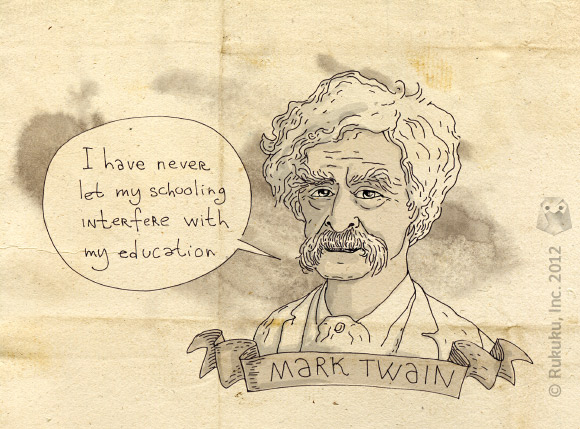At Rukuku, we’re always thinking about solutions that will give people options when it comes to education. One of the problems we are trying to solve is the problem of relevance: we want people to be learning things that are relevant to their personal interests and professional goals.
The United States is respected around the world for its venerable system of higher education. There is much to laud: there’s no doubt that we have some of the world’s best colleges and universities, greatest opportunities for research and innovation, and most talented people.
Unfortunately, American education is also severely deficient in one very important area: real-life career training. When it comes to technical or vocational programs, or even just learning a relevant skill at one’s own initiative, we do not have many quality options available. This is in stark contrast to other developed countries, such as Germany, where only a small fraction of people attend full-fledged universities, with most opting for narrower professional programs.
In a recent exchange of political slurs between our president and candidate Rick Santorum, the latter called Obama a “snob” for suggesting that everyone should go to college. It’s a shame Santorum’s many years of higher education didn’t teach him any tact, because he missed a perfect opportunity to make a serious statement on the matter. What he might have been trying to say, in his indelicate Santorumish way, is that there should be a lot of alternatives to the traditional four-year higher education model. That, actually, would have been a pretty sensible thing to say. If he had said it.
As important as higher education is to many people, there are many other people who do not need to attend universities and learn useless things that will not help them to become productive members of society. There was a time in America when it was possible to be make a great living doing a skilled trade without having to go through the motions of receiving a (completely useless for many) bachelor’s degree. Those days can return if we’re willing to accept the idea that college really isn’t for everyone, and that many of us would be better off learning real, useful skills instead.

This argument has some seriously positive economic implications, too. The United States, once the world’s most prolific producer, currently exports much less than it imports. A lot less. We don’t make anything anymore in this country – and I daresay part of the reason is that we’ve forgotten how.
Now, you can talk all you want about how our labor can’t compete with cheap labor from Asia, and how we’re destined to become a 100% service economy, and all that jazz. But guess what? The Germans clearly didn’t get that memo. Despite having one of the most expensive labor forces in the world, they continue to produce everything from washing machines to cars to electronics to medical equipment to Märzen. You can go ask their $18 billion trade surplus if you don’t believe me.
College is undoubtedly one of the most important ways to encourage an educated, productive population. But it should not be the only answer, and if you still think it is, perhaps you ought to get off your ivory tower!
What do you think, readers? Leave your angry comments below.



